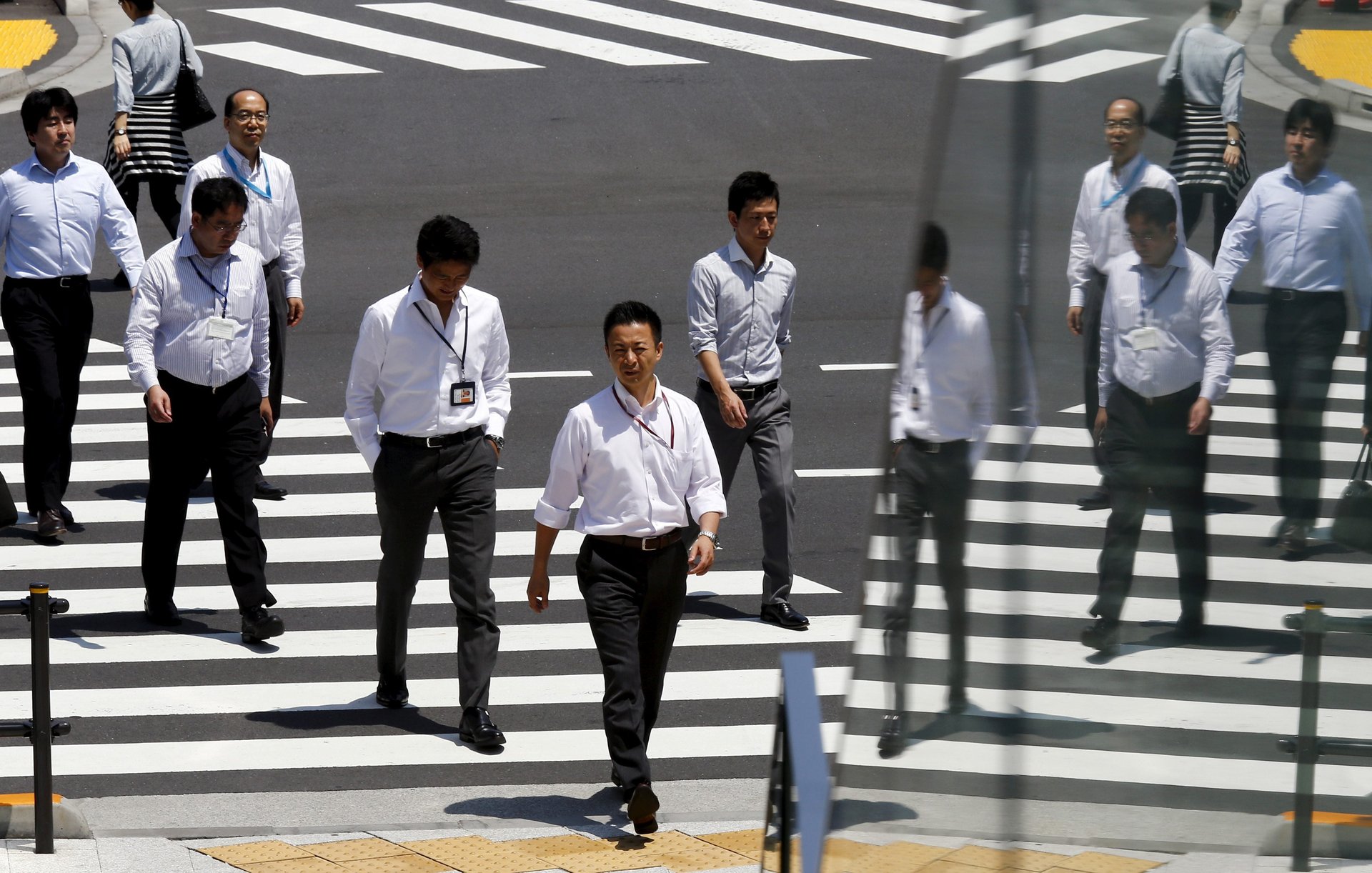Japan finally passed laws to prevent “pawa hara,” or workplace bullying
In recent years, Japan has embarked on a series of reforms to address the problems plaguing its workplaces, including excessively long hours and rigid work arrangements. Now the government is tackling the scourge of harassment in the workplace.


In recent years, Japan has embarked on a series of reforms to address the problems plaguing its workplaces, including excessively long hours and rigid work arrangements. Now the government is tackling the scourge of harassment in the workplace.
Bullying in the workplace is not uncommon in Japan, where many companies remain deeply hierarchical and relationships between superiors and subordinates are seen as inviolable. Workplace bullying is known as pawa hara (power harassment) in Japan, a term coined in 2003 (pdf, p.1) by a Japanese social psychologist. As a sign of the prevalence of everyday harassment across different facets of life, the term is just one of a host of portmanteau words (paywall) defining different forms of it: mata hara for maternity harassment, seku hara for sexual harassment, and aka hara for academic or campus harassment.
Japan’s parliament yesterday (May 29) voted to force companies to take stricter action against harassment in the workplace, including implementing “consultation systems” to prevent it and prohibiting employers from firing or mistreating workers who speak up about harassment, according to broadcaster NHK. The abuse of power has been defined to include “excessive words and behavior by people who take advantage of their superior positions, harming the working environment,” according to newswire Kyodo.
The law also encompasses other forms of harassment: for example, companies are required to “enhance understanding” of harassment against pregnant women, according to NHK. Larger companies are under stricter rules, and must for example also publish statistics on female recruits, while small companies only have to implement related measures on a voluntary basis at least for the next two years.
The legislation, however, did not stipulate what the punishment would be for companies that violate the law. The Asahi newspaper also reported that the government decided against an outright ban on workplace harassment because of the difficulty in specifying what actions constitute as harassment.
The Japanese government has made labor reform a key part of its policies in recent years, as prime minister Shinzo Abe tries to root out what he sees as problems that are impeding the country’s economic growth and efficiency. In a labor reform plan outlined in 2017, the government mentioned the need (link in Japanese) to strengthen measures against power harassment in Japanese workplaces.
The Ministry of Health, Labour and Welfare also launched a website (link in Japanese) and Twitter account in 2015 called “No pawa hara” that broke down power harassment into six different categories: physical abuse, mental or emotional abuse, deliberately isolating an individual in the workplace, overworking an employee, giving an employee work that is far below their skill level or scope, and infringement of privacy by asking personal questions not pertinent to work.
The national discussion over pawa hara reached fever pitch in 2017 when a recording surfaced of a a female lawmaker in the ruling Liberal Democratic Party screaming insults at her male assistant including “baldy” and “you should die.” She later submitted her resignation to the party, and was given the moniker ”pink monster” by Japanese media because of her penchant for pink clothing.